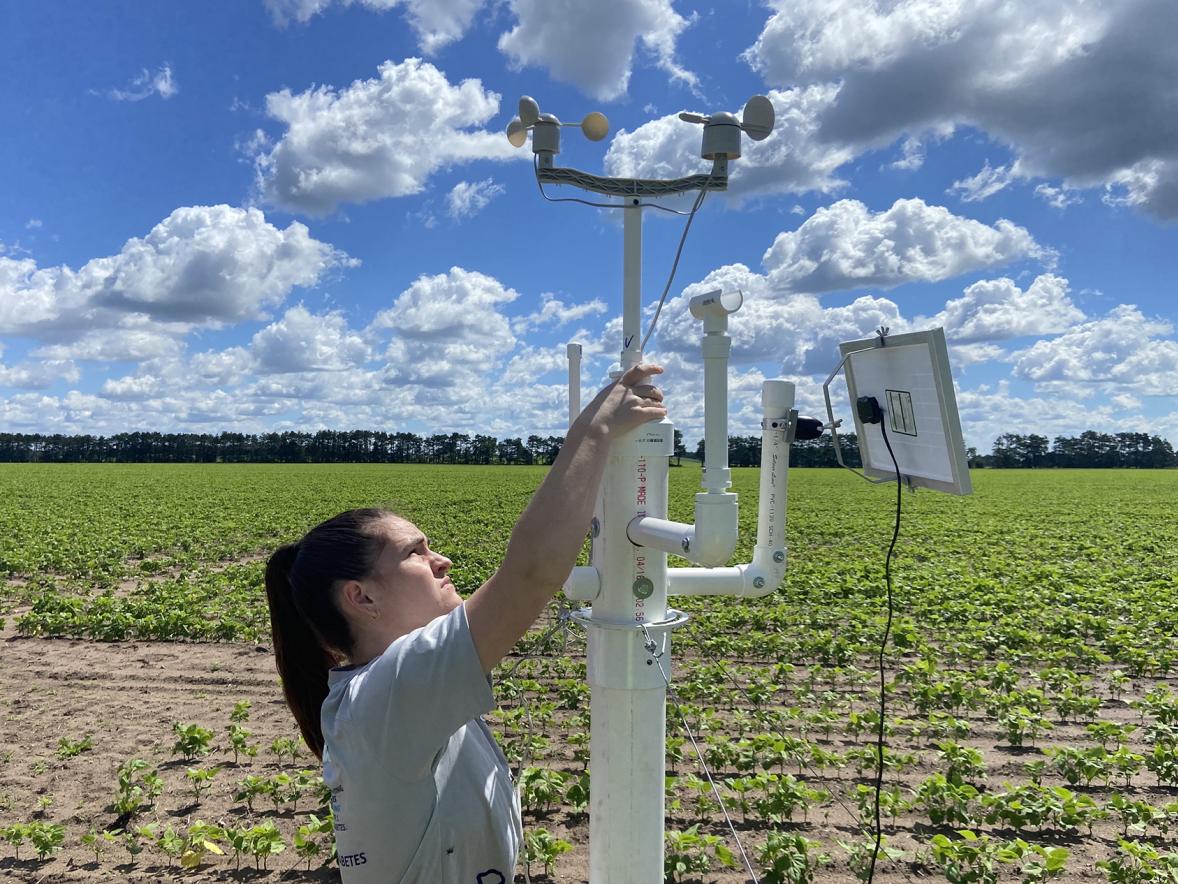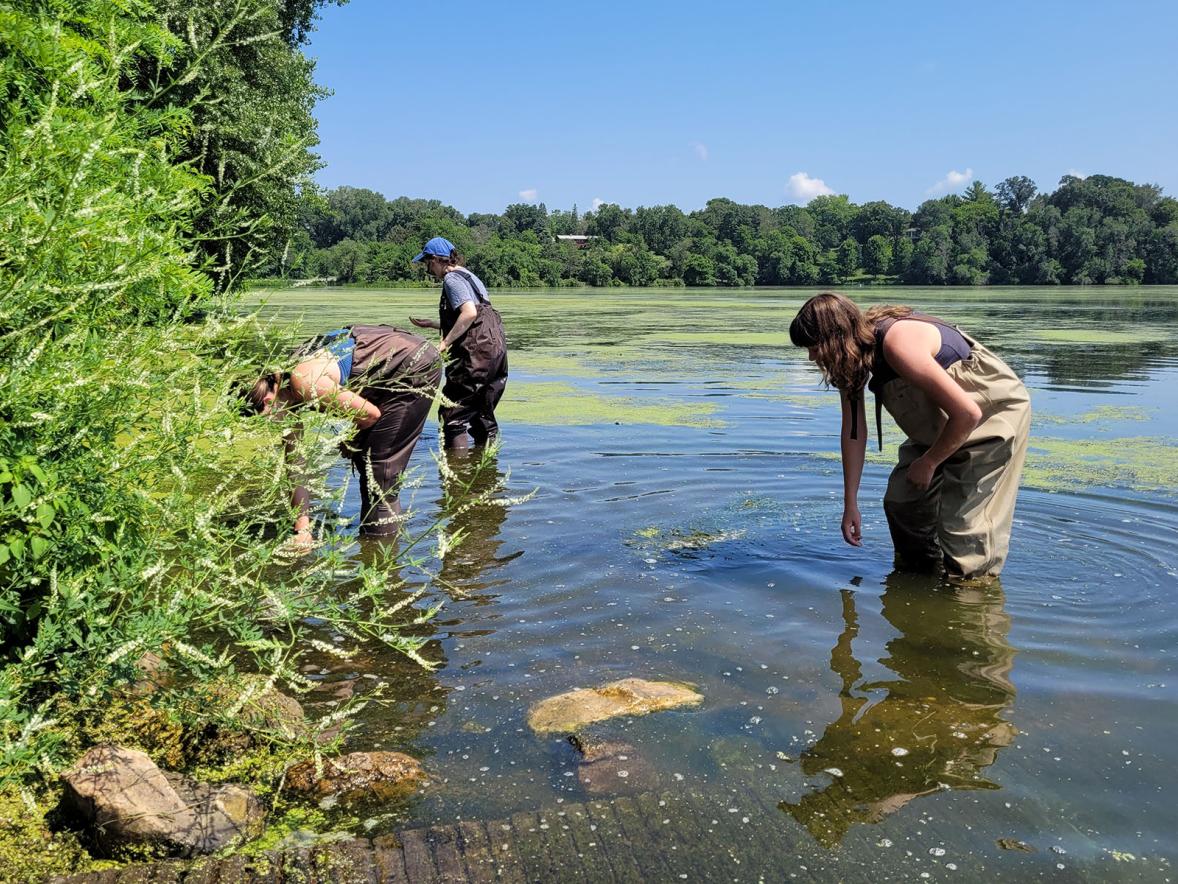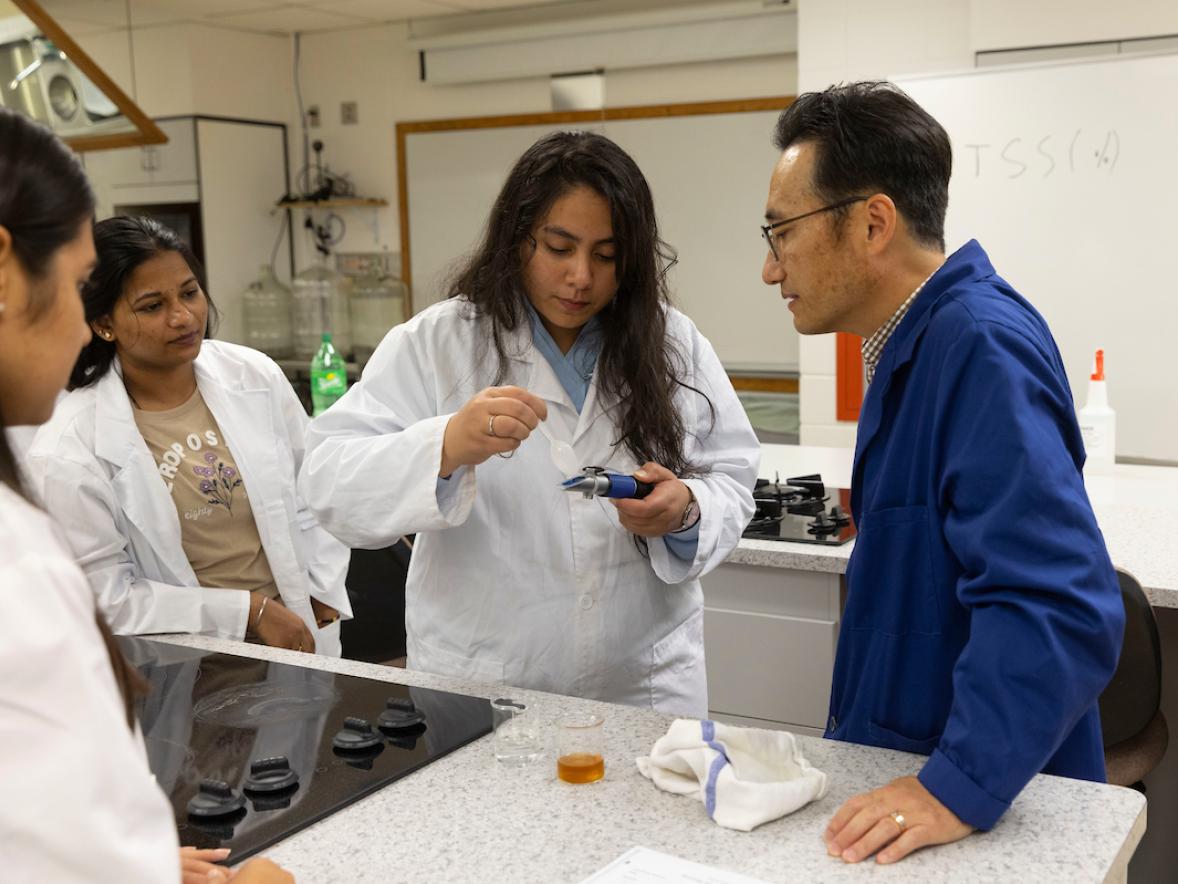UW-Stout students across multiple programs in the College of Science, Technology, Engineering, Mathematics and Management stayed cool under pressure as they took home first and second place prizes in multiple regional and state competitions this fall.
The Coding Club dialed in first places in both the experienced and novice team classes in the programming competition at the 30th annual Consortium for Computing Sciences in Colleges Midwestern Conference.
Four computer and electrical engineering students raced against teams from 13 area universities to solve computer programming problems at the DigiKey Collegiate Computing Competition to earn second place.
And Areeba Ali, a graduate student in M.S. food science and technology, won the Wisconsin Biohealth Communications Competition for graduate students at the Wisconsin Biohealth Summit. This is her second first-place prize for research this fall.
Coding Club takes first place twice in CCSC competition
Coding Club members participated remotely from Jarvis Hall Science Wing during the Consortium for Computing Sciences in Colleges, Oct. 20-21. An in-person competition was held at University of Indianapolis’ Schwitzer Student Center.
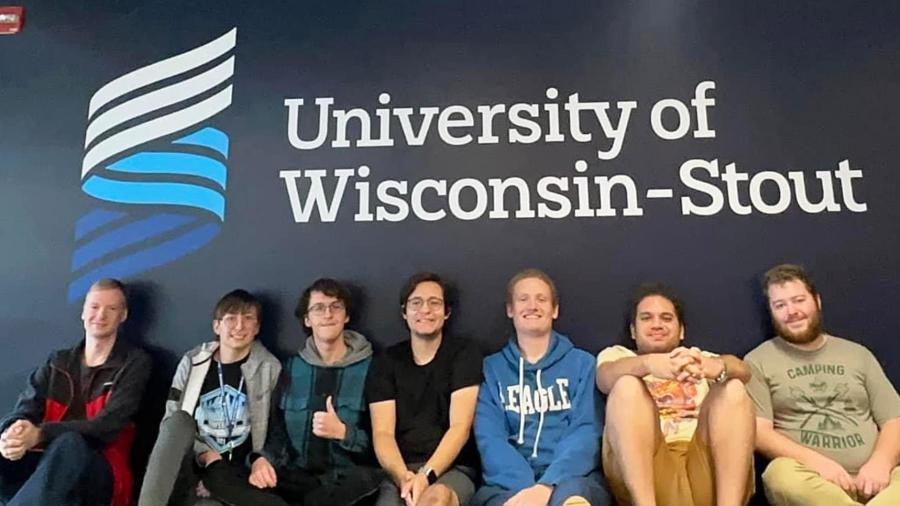
Club members involved were:
- Evan Dewitt, computer science junior from Wisconsin Rapids
- Riley Gaetz, first-year computer science student from Eau Claire
- Emmett Jaakkola, second-year applied mathematics and computer science student from St. Paul
- Brett Kreklau, applied mathematics and computer science senior from Chili, Wis.
- Nathan LaCrosse, first-year applied mathematics and computer science student from Portage
- Tyler Marefke, applied mathematics and computer science; computer science alum from Marshfield
- Ziad Mohammad, computer and electrical engineering senior from Alexandria, Egypt
- Matthew Pomes, computer science senior from Milwaukee
- Dylan Rothbauer, second-year computer science student from Cadott
“A good way to think about coding is that it’s like writing instructions for a computer to do a certain task,” LaCrosse said. “I would encourage others to join Coding Club. The competition was a good experience, and it’s a great way to familiarize yourself with problem solving in computer science.”
Professors Saleh Alnaeli and Ahmed El-Magrous, faculty advisers and club officers, helped organize the conference.
“We try to motivate our students to go beyond the classroom. Joining Coding Club and participating in competitions like CCSC are great opportunities to be involved and build leadership skills,” said Alnaeli, who thanked UW-Stout’s mathematics, statistics and computer science department for its support.
During the conference, Alnaeli and El-Magrous presented “Exploring the Quality and Vulnerabilities of Open Source Systems: An Empirical Investigation.” Professor Tyler Thomas presented on “Secview: A Design for Lightweight Security Code Reviews through Live Static Analysis Integration.” He also presented senior project pitches from the computer science Software Engineering Practicum.
The CCSC is a nonprofit organization that promotes the advancement of computer science degree programs and curricula. It also supports activities for faculty related to computing resources and educational applications of computer technology.
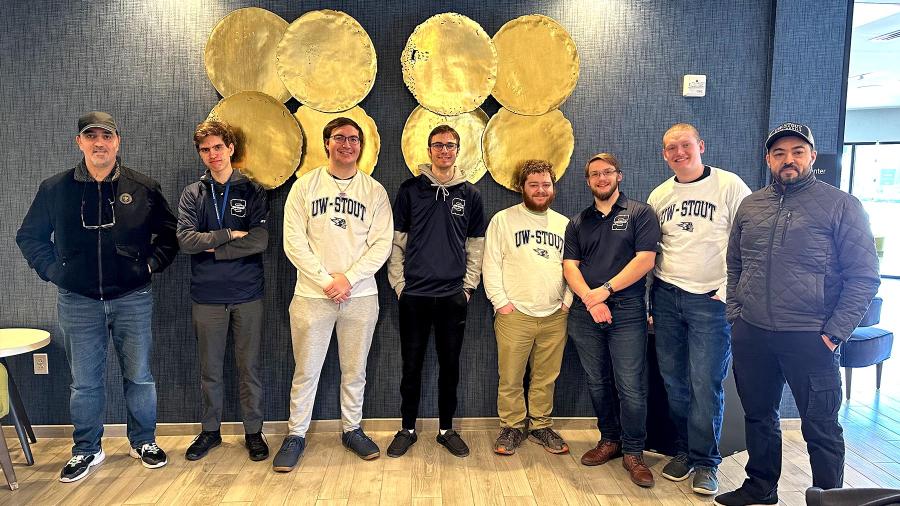
Last spring, Coding Club students took second among 30 university teams in the programming contest at the 55th annual Midwest Instruction and Computing Symposium, at the University of Northern Iowa, in Cedar Falls, Iowa.
CEE students takes second place in DigiKey competition
The second-place DigiKey team traveled to Thief River Falls, Minn., on Oct. 20. Their challenge consisted of a set of word problems and two programming events – a long problem and a short problem.
Members were Corey Hedlund, of Eau Claire; Sam Koland, of Forest Lake, Minn.; Jack Lonn, of Eden Prairie, Minn.; and Michael Witt, of Port Washington. They were coached by Assistant Professor Yuan Xing, engineering and technology department.
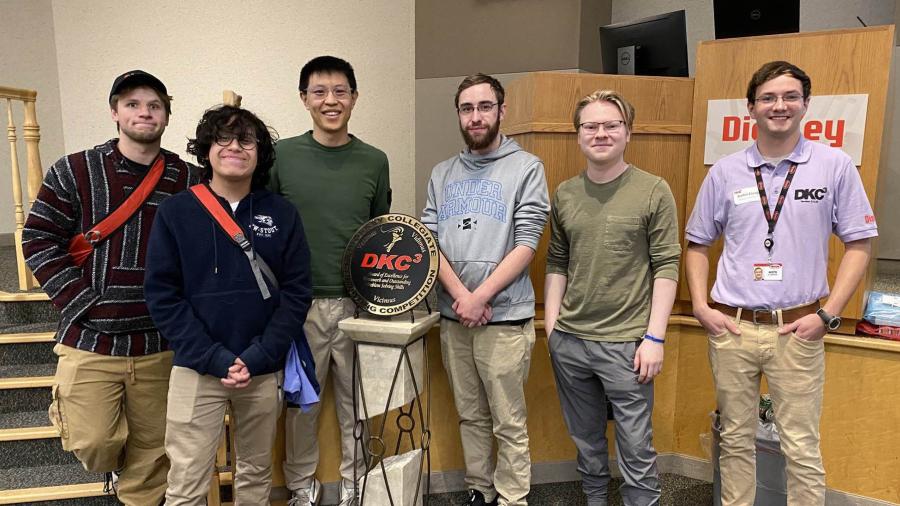
“The word problems were basically like a math test. We did extremely well on this section and only missed one out of the 24 problems. We got first for that section. I enjoyed the competition, mainly because I got to hang out with some cool teammates,” said Hedlund, who enjoys the CEE program because of the big class projects, where “I can choose what I want to do and spend a few months making it real.”
For the programming problems, teams were given a description of desired inputs and outputs, with a goal to write a program that gave an expected output, and which ran on 10 test cases. The teams were given 15 short problems and four long problems, with 90 minutes to solve each set.
UW-Stout’s team solved seven out of 10 test cases for the short programming problems. Six teams out of 19, including UW-Stout’s team, solved none of the long problems, which were much more difficult, Hedlund added.
“The DigiKey competition has a huge impact in this region,” Xing said. “Teams from Wisconsin, Minnesota and North Dakota attend. UW-Stout has been invited to attend every year, but this is the first time our team received a prize – an amazing second place.”
The team received $3,000 and each member received a $200 Amazon gift card. DigiKey has been holding the competition since 2000.
Ali’s research wins first place at BioForward competition
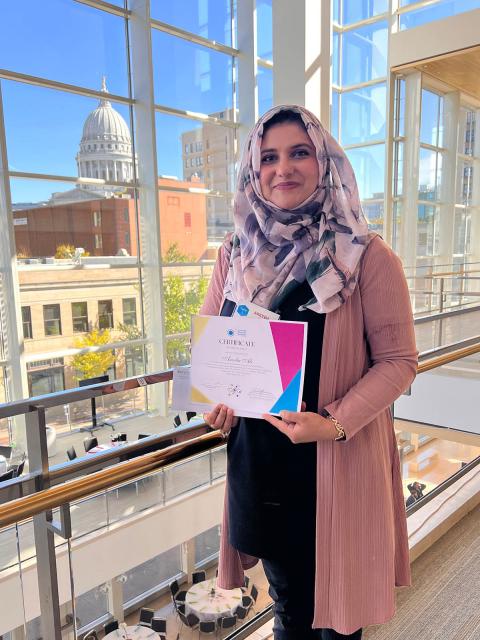
At the Biohealth competition, Ali presented her research, “Eco-friendly Biodegradable Packaging for Food from Milk Whey Protein Isolate,” competing against other graduate/medical students and postdoctoral fellows from Wisconsin universities and technical colleges. Her research into sustainable packaging made from milk protein was inspired by Wisconsin’s dairy-rich identity.
The competition, organized by BioForward Inc., seeks to aid Wisconsin’s young biohealth leaders and emerging scientists in developing critical skills to discuss advanced topics with the general public in quick, fun and accessible presentations, Ali said.
“This could not have been possible without the guidance of my supervisor, Dr. Pranabendu Mitra,” Ali said.
Ali thanked UW-Stout’s Office of Research and Sponsored Programs, which awarded her a Student Research Dissemination Grant to attend the event. Students have four opportunities each year to apply for the grant. Last year, 41 grants were awarded, totaling $47,087.
This was the third annual Biohealth competition, held on Oct. 17, at the Overture Center, in Madison.
Food science graduate student Areeba Ali wins WiSys Quick Pitch state title, People’s Choice
Continue ReadingAli received $1,000 for her first place. In August, she also won first place and the People’s Choice Award for “Development of Eco-friendly Milk Whey Protein Isolate Biodegradable Packaging,” at the annual WiSys SPARK Symposium’s Quick Pitch state final, hosted by UW Oshkosh.





